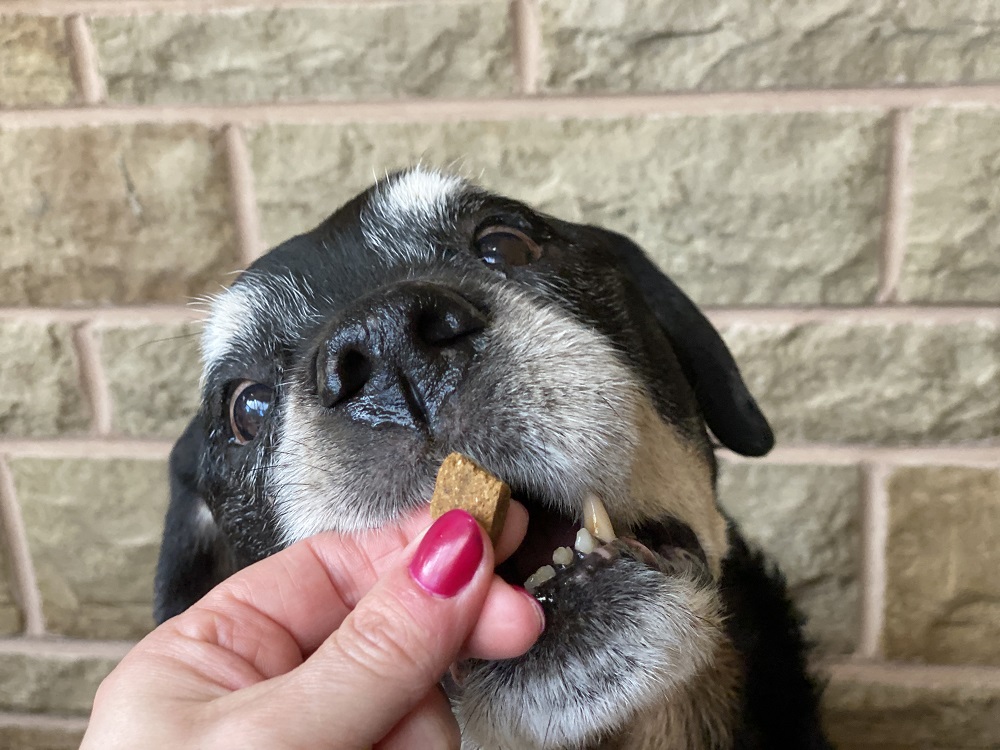Gluten free dog food UK options are more popular today than ever. Following international pet food recalls and a wider awareness of dog allergies related to nutrition (caused by gluten, corn and other stimulants), more and more UK dog owners are seeking gluten free diets for their canine companions.

Feeding gluten free dog food to your canine friend would naturally lower its predisposition for diseases such as diabetes, celiac disease, allergies, and chronic and degenerative diseases.
As a gluten free diet is closer to that of what a dog would eat in the wild, the dog is able to process thier food more effectively, bringing about results such as increased energy and activity and decrease in arthritic pain and symptoms related to digestive system complaints.
One of the more common dog food allergens is wheat or, more specifically, the gluten in wheat. Dogs can have gluten allergies like humans as well. Luckily there are gluten free dog food products on the market that can alleviate this problem. Gluten is a protein that is found in wheat.
Some people and dogs are allergic to this protein. There is also gluten found in rye and barely so if these ingredients are found in your dog’s dog food then your dog may also present an allergic reaction to those too.
Even though some firms call their dog food’s ingredients gluten-free if it doesn’t have wheat or grain, you really want one that’s oat, barley, and rye free too. Celiac disease – the inability to digest gluten) is more common in people and animals that formerly thought. Having raised a child with celiac, I have had to learn all about this.
A few years ago there was a huge pet food recall due to a contaminated form of gluten that contained a compound called melamine, which can be fatal to animals and humans.
It was a very tragic time as a lot of dogs that ate the infected food ended up dieting. Ever since then, the issue of gluten has become a very popular topic, and the question always arises of how beneficial gluten free dog food actually is. Humans are prone to a type of disease known as celiac disease, which is also less formally known as gluten allergies. What most people don’t know though is that dogs can develop celiac disease just as easily, which is why monitoring gluten intake is a very important aspect of your dog’s health.
Many dogs may also experience allergic reactions to corn. Symptoms of such reactions may include irritation of the skin, ear infections, bloating, inflammation of the kidneys and liver, head tremors, hair loss, hyperthyroidism and heart diseases. Moles and warts may also develop on the skin and even loss of hearing can occur. Dog foods that do not contain corn are also usually gluten free dog food and are rich in protein. When purchasing dog food, it is important to read the labels and examine the three ingredients that are listed first. These ingredients comprise of 75 per cent of the content of the food and as such are the most important.
Gluten allergies are not deadly, but they can be very debilatating for your dog, and if it is the case that gluten is the cause of the problem, a high gluten diet will obviously aggravate the situation. Many vets will prescribe a gluten free dog food for your dog, but it is quite possible to make your own using natural, gluten free ingredients.
 Gluten Free Further Reading
Gluten-Free Diet Fad: Are Celiac Disease Rates Actually Rising?
What’s Eating You? Maybe It’s What You’re Eating
Enter your email and never miss out on receiving our best articles:






